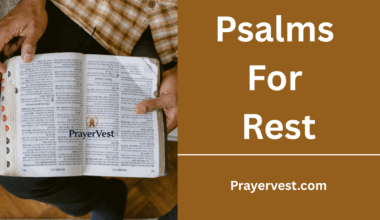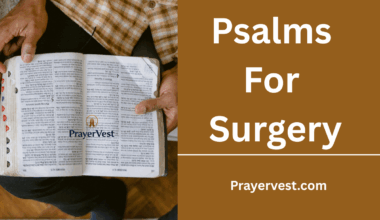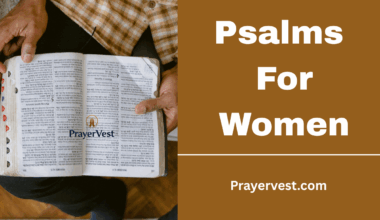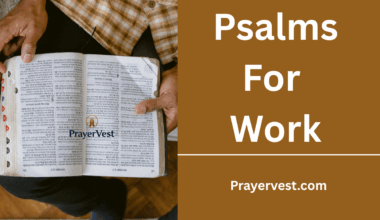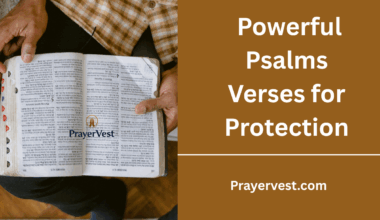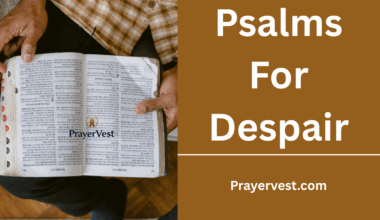Forgiveness is one of the most profound and essential themes in the entire Bible. At the center of our faith lies a merciful God who, despite our imperfections and failures, extends grace, pardon, and restoration. Nowhere is this dynamic more vividly captured than in the Book of Psalms—a raw, poetic anthology of humanity’s struggles, regrets, prayers, and praises.
Forgiveness is not about pretending nothing happened. It’s about acknowledging our wrongs, turning to God with sincerity, and receiving the freedom only He can provide. Whether you’re seeking forgiveness for yourself, struggling to forgive others, or trying to understand God’s mercy on a deeper level, the Psalms offer comfort, clarity, and spiritual healing.
This article explores 50 powerful Psalms about forgiveness, each carefully selected to inspire honest reflection and lead you into a deeper understanding of God’s redemptive nature. Each Psalm includes a verse excerpt, a rich contextual description, and a heartfelt reflection designed to enrich your faith and guide your prayers.
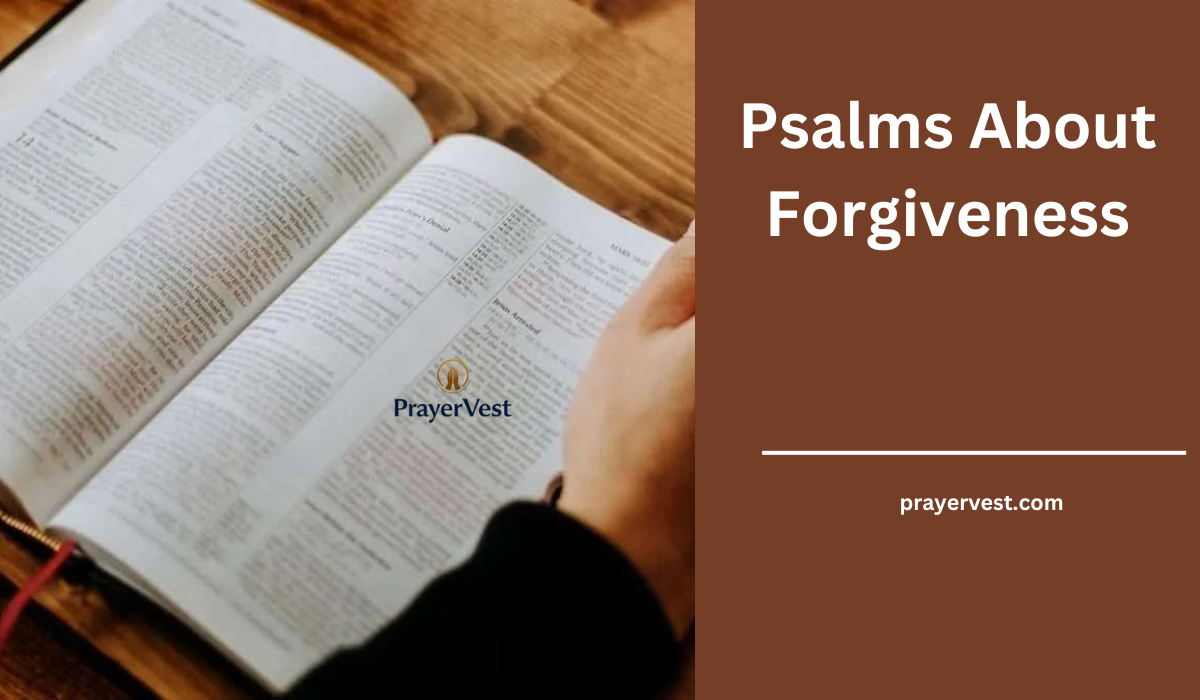

As you read, may your heart open wider to God’s mercy. May these Psalms become not just poetic words, but living prayers that guide you from guilt to grace, from brokenness to restoration, and from sorrow to joy.
50 Most Powerful Psalms About Forgiveness (2026)
1. Psalm 51:1
“Have mercy on me, O God, according to your steadfast love.”
This iconic Psalm of repentance, written after David’s fall with Bathsheba, opens with a desperate cry for mercy—not based on merit but on God’s unfailing love. It’s one of the clearest biblical portrayals of true contrition.
Reflection
When we sin, our instinct may be to run or hide. But David runs toward God. His appeal is not based on personal goodness, but on God’s loving character. This verse reminds us that forgiveness isn’t earned—it’s received. When you’re burdened by guilt, anchor your heart in God’s steadfast love and ask boldly for mercy.
2. Psalm 32:5
“I acknowledged my sin to you… and you forgave the iniquity of my sin.”
Here, David reflects on the relief and healing that comes from confession. The moment he stopped hiding and brought his sin into the light, he experienced the transformative power of God’s forgiveness.
Reflection
There is freedom in honesty. Holding onto guilt only deepens our wounds. But when we bring our sins before God, He meets us with grace, not wrath. Don’t wait for the “right moment” to confess. Speak to God openly—He already knows, and He already loves you.
3. Psalm 86:5
“For you, O Lord, are good and forgiving, abounding in steadfast love to all who call upon you.”
This verse highlights the inclusive nature of God’s forgiveness—it’s available to all who call on Him. God’s goodness and love aren’t reserved for the worthy but lavished on the repentant.
Reflection
Sometimes we disqualify ourselves from grace. But this Psalm silences that lie. God is eager to forgive. He waits, not to punish, but to restore. If you’ve wandered, remember: He abounds in mercy. Call on Him. His forgiveness isn’t measured—it overflows.
4. Psalm 103:12
“As far as the east is from the west, so far does he remove our transgressions from us.”
This vivid metaphor emphasizes the totality of God’s forgiveness. East and west never meet—just like our forgiven sins are never brought up again. They’re truly removed, not just covered.
Reflection
When God forgives, He forgets in a way that frees us. You don’t have to carry yesterday’s weight into tomorrow. Let this verse be your reminder: grace doesn’t just erase the record—it rewrites your identity. You are no longer defined by your past.
5. Psalm 130:3–4
“If you, O Lord, should mark iniquities, who could stand? But with you there is forgiveness.”
This Psalm captures both the fear and awe of divine justice—and the comfort of divine mercy. None of us could survive if God kept a record of wrongs, but forgiveness is His nature.
Reflection
We all fall short. But this verse offers a beautiful paradox: though God is all-knowing, He chooses to forgive. Your flaws aren’t a surprise to Him. Instead of hiding, draw near. With Him, there is always more grace than guilt, more love than shame.
6. Psalm 6:1–2
“O Lord, rebuke me not in your anger… Be gracious to me, O Lord, for I am languishing.”
In this deeply emotional Psalm, David pleads not just for mercy, but for restraint in God’s discipline. He is physically, emotionally, and spiritually worn out—yearning not for justice, but for healing through grace.
Reflection
This Psalm captures the vulnerability of a soul that knows it has failed. Sometimes guilt makes us fear God’s wrath—but David shows that it’s okay to ask for mercy instead of punishment. God understands our frailty. When you feel crushed by conviction, don’t run from Him—run to Him. His grace will always meet your weakness.
7. Psalm 25:7
“Remember not the sins of my youth or my transgressions.”
David offers a prayer that resonates with anyone haunted by past mistakes. He doesn’t ask for those sins to be excused—he asks for them to be forgotten, replaced in God’s memory by divine mercy.
Reflection
We often carry the weight of our younger years—decisions made in ignorance or rebellion. But God is not a scorekeeper. He’s a restorer. Ask Him to blot out the old and begin something new. His memory is full of mercy, not mistakes. And when you’re forgiven, He chooses not to remember what you regret.
8. Psalm 79:9
“Help us, O God of our salvation, for the glory of your name; deliver us, and atone for our sins.”
This verse reflects Israel’s collective cry for mercy after a time of national disgrace and sin. The Psalmist pleads for forgiveness—not just for personal relief, but to glorify God’s redemptive nature.
Reflection
When we seek forgiveness, it’s not just about easing guilt—it’s about magnifying God’s glory. Every time He forgives us, His name is exalted. If you feel unworthy, remember: your restored life becomes a testimony to His mercy. Let your plea for forgiveness become a praise for who He is.
9. Psalm 38:18
“I confess my iniquity; I am sorry for my sin.”
In this simple but powerful verse, David models the heart of confession—owning his failure and expressing genuine remorse. No excuses. No blaming. Just honesty before God.
Reflection
True confession isn’t about checking a box—it’s about heartfelt sorrow and a desire to change. God doesn’t want theatrics—He wants truth from the inward parts. When you come to Him with nothing but honesty, He meets you with everything you need: mercy, grace, and restoration.
10. Psalm 40:11–12
“As for you, O Lord, you will not restrain your mercy from me… my iniquities have overtaken me.”
David acknowledges the overwhelming nature of his sins—but his hope is rooted in the assurance of God’s unrestrained mercy. Even when sins multiply, God’s mercy does not run dry.
Reflection
Have you ever felt like your failures are too many to count? David did. But he didn’t despair—he believed in a mercy that multiplies faster than sin. God doesn’t cap His forgiveness. His arms don’t tire of welcoming you back. If you feel overtaken by sin, know this: His mercy will overtake you.
11. Psalm 143:2
“Enter not into judgment with your servant, for no one living is righteous before you.”
This humble plea recognizes that no one is truly righteous in God’s eyes. The Psalmist asks God to refrain from judgment, not because of personal merit, but because he understands the depth of divine justice.
Reflection
This verse reminds us that even the most faithful fall short. Perfection is not the prerequisite for mercy—humility is. Instead of defending your actions, follow David’s example and appeal to God’s grace. When we admit our need, we open the door to divine compassion, not condemnation.
12. Psalm 65:3
“When iniquities prevail against me, you atone for our transgressions.”
David acknowledges that sin can feel overwhelming, but he quickly redirects focus to God’s initiative—He atones for what we cannot fix ourselves. It’s a Psalm of assurance for the brokenhearted.
Reflection
You may feel like sin is winning in your life, but this verse promises that God is greater. Where sin abounds, grace abounds even more. Don’t let shame silence you—run to the One who makes atonement. His love covers what your strength never could.
13. Psalm 25:11
“For your name’s sake, O Lord, pardon my guilt, for it is great.”
David appeals not to his own worth, but to God’s name and reputation. He doesn’t minimize his guilt—he magnifies God’s willingness to forgive even the great sins.
Reflection
No sin is too big for God’s mercy. When you confess, you’re not bargaining—you’re surrendering to a God whose name is synonymous with grace. Even if your guilt feels enormous, His name is greater. Ask boldly, not because you’re worthy, but because He is.
14. Psalm 86:15
“But you, O Lord, are a God merciful and gracious, slow to anger and abounding in steadfast love.”
This verse is a beautiful reminder of God’s unchanging nature. Even when we deserve wrath, God responds with patience, grace, and steadfast love.
Reflection
You may expect God to be angry—but He is slow to anger. His default is mercy, not judgment. When you’re at your lowest, remind yourself of who He truly is. This Psalm calls you to let go of fear and embrace the arms of a loving Father, always ready to forgive.
15. Psalm 41:4
“As for me, I said, ‘O Lord, be gracious to me; heal me, for I have sinned against you!’”
Here, David combines the request for forgiveness with a desire for healing, showing how sin wounds both the spirit and the body. He knows his restoration depends on God’s grace.
Reflection
Sin doesn’t just stain—it scars. And God doesn’t just forgive—He heals. This verse encourages you to bring your wounds, regrets, and failures to the One who restores. Let grace mend what guilt broke. Healing is part of forgiveness—embrace both.
16. Psalm 78:38
“Yet he, being compassionate, atoned for their iniquity and did not destroy them.”
Despite Israel’s repeated rebellion, God remained compassionate. Instead of unleashing deserved punishment, He chose mercy and provided atonement. This Psalm recalls God’s consistent choice to forgive over condemning His people.
Reflection
God’s patience is overwhelming. Even when we stumble repeatedly, He doesn’t give up on us. He atones, He withholds wrath, and He restores. This Psalm reminds you that divine mercy is stronger than your failures. God’s forgiveness isn’t just a one-time offer—it’s a pattern of grace that endures.
17. Psalm 51:10
“Create in me a clean heart, O God, and renew a right spirit within me.”
After acknowledging his sin, David asks not only for pardon, but for inner transformation. He recognizes that true forgiveness should lead to renewal—a restored heart and spirit aligned with God.
Reflection
Forgiveness isn’t just about being let off the hook—it’s about becoming new. If you’re weary of falling into the same patterns, ask God to change your heart, not just your record. Transformation begins with honest prayer and divine intervention. Let His mercy clean you from the inside out.
18. Psalm 106:6
“Both we and our fathers have sinned; we have committed iniquity; we have done wickedness.”
This verse acknowledges generational sin and collective wrongdoing. It’s a communal confession that doesn’t shift blame but embraces responsibility for failure, regardless of timeline.
Reflection
Sometimes we need to confess not just personal sin, but collective guilt. Whether it’s family patterns, cultural wrongdoing, or spiritual neglect, owning up to it allows healing to begin. God honors honest repentance—whether it’s yours alone or one you speak on behalf of many.
19. Psalm 130:1–2
“Out of the depths I cry to you, O Lord! O Lord, hear my voice!”
This cry from the depths expresses desperation. The Psalmist knows his sins have pulled him low, yet he still dares to call upon God—believing He listens even in the darkest moments.
Reflection
Have you ever felt like you’re too far gone to pray? This verse proves otherwise. Even when you’re in the depths of guilt, despair, or distance, God hears you. Don’t let shame keep you silent. Cry out. Mercy is not reserved for the perfect—it’s for those deep in need.
20. Psalm 25:6
“Remember your mercy, O Lord, and your steadfast love, for they have been from of old.”
David pleads with God to act based on His eternal nature—not on current performance. He appeals to mercy that predates failure, trusting that God’s love has always been and always will be.
Reflection
When you ask God for forgiveness, you’re not hoping He’ll invent mercy—you’re reminding Him (and yourself) that mercy is His legacy. Your past may be messy, but His love is ancient and unshaken. Return to the God whose mercy never ages or ends.
21. Psalm 51:17
“A broken and contrite heart, O God, you will not despise.”
This verse captures the essence of what God desires from the repentant—humility and genuine sorrow. It tells us that what moves God’s heart isn’t perfection, but honest contrition and surrender.
Reflection
When guilt feels overwhelming, this Psalm is your comfort. God is not drawn to performance—He’s drawn to brokenness that reaches for Him. Your heart, cracked and vulnerable, is exactly what He won’t turn away. Don’t hide your sorrow; offer it. God will receive it with love.
22. Psalm 79:8–9
“Do not remember against us our former iniquities… deliver us, and atone for our sins.”
This corporate prayer pleads for God to forget past failures and intervene with mercy. It’s an honest, urgent cry for collective forgiveness and deliverance in a time of national distress.
Reflection
Our past may feel like a chain we can’t shake, but God is in the business of remembering mercy, not sin. This Psalm encourages us to seek not only personal restoration but healing for our communities and families. Forgiveness is both personal and communal in God’s eyes.
23. Psalm 103:10
“He does not deal with us according to our sins, nor repay us according to our iniquities.”
This verse highlights the radical mercy of God—He chooses not to treat us as our sins deserve. His justice is tempered by compassion and love, which is central to His character.
Reflection
We often expect divine punishment because we know we’ve fallen short. But this Psalm shifts our focus to grace. God doesn’t hold a grudge—He offers freedom. When forgiveness seems too good to be true, remember: His mercy redefines what you deserve.
24. Psalm 32:1
“Blessed is the one whose transgression is forgiven, whose sin is covered.”
This beatitude declares the happiness and peace of those who are forgiven. To be “covered” by God’s grace is to be shielded from the shame and consequences of sin.
Reflection
Forgiveness is a blessing that transforms sorrow into joy. When your sins are covered by God, it means He no longer sees you through the lens of your mistakes. This Psalm is a celebration of redemption—embrace it. You are not condemned; you are covered.
25. Psalm 109:21–22
“But you, O God my Lord, deal on my behalf for your name’s sake… I am poor and needy.”
In the face of persecution and guilt, the Psalmist pleads for God to intervene—not for personal gain, but to uphold God’s name. He presents himself honestly: needy, broken, and dependent.
Reflection
This is a prayer of raw surrender. Sometimes all you can offer is your need. And that’s enough. When you feel too weak or unworthy to even pray, know that God delights in showing mercy for His name’s sake. He rescues not just because of who we are—but because of who He is.
26. Psalm 86:5
“For you, O Lord, are good and forgiving, abounding in steadfast love to all who call upon you.”
This verse is a powerful declaration of God’s character—He is not only capable of forgiving but does so abundantly and lovingly. His mercy isn’t limited to a select few, but is extended to all who truly seek Him.
Reflection
God’s forgiveness doesn’t run dry. When you feel undeserving, this verse reminds you that He forgives because it’s who He is, not because of what you’ve done. His love is steadfast. His goodness overflows. Call on Him sincerely, and you’ll never be turned away.
27. Psalm 32:5
“I said, ‘I will confess my transgressions to the Lord,’ and you forgave the iniquity of my sin.”
David describes the breakthrough that comes with confession. Holding onto sin caused him agony, but as soon as he admitted it to God, he experienced immediate forgiveness and relief.
Reflection
Confession isn’t weakness—it’s freedom. God doesn’t require perfection, just honesty. When you finally speak the truth of your heart, He doesn’t scold—you’re met with grace. This Psalm reassures you that confession is the doorway to restoration. Step through it boldly.
28. Psalm 103:12
“As far as the east is from the west, so far does he remove our transgressions from us.”
This poetic imagery emphasizes the totality of God’s forgiveness. East and west never meet, symbolizing how completely God separates us from our sins when He pardons us.
Reflection
When God forgives you, He doesn’t keep your sins nearby “just in case.” He removes them entirely. You are not meant to carry shame once He’s removed the stain. Let this verse anchor your heart in assurance: you are not your past—you are redeemed.
29. Psalm 51:2
“Wash me thoroughly from my iniquity, and cleanse me from my sin!”
In this heartfelt plea, David doesn’t just want forgiveness—he wants cleansing. He’s seeking more than pardon; he’s asking for renewal, inside and out.
Reflection
Sin can make us feel stained and unworthy. But God offers more than a legal acquittal—He offers a spiritual cleansing. This verse reminds us that when we repent, God doesn’t just say “You’re forgiven.” He makes us new. Ask Him to wash every hidden corner of your heart.
30. Psalm 130:4
“But with you there is forgiveness, that you may be feared.”
This verse ties forgiveness to reverence. God’s mercy is not a license to sin but a reason to honor Him even more. The awe comes not from punishment, but from the overwhelming grace He shows.
Reflection
Forgiveness should humble us. Knowing we’ve been spared and restored should deepen our reverence for God. This Psalm reminds us that grace is not cheap—it’s sacred. When you realize how freely He forgives, your heart will naturally respond in worship, gratitude, and a holy fear.
31. Psalm 25:18
“Consider my affliction and my trouble, and forgive all my sins.”
David pleads with God to look beyond his outward troubles and address the root—his sin. He recognizes that forgiveness is the true balm for suffering and the starting point of healing.
Reflection
When life feels heavy, it’s easy to focus only on external problems. But often, what we need most is an inner cleansing. This Psalm encourages us to go deeper, to seek the forgiveness that brings real peace. God sees your burden and is ready to lift it—inside and out.
32. Psalm 51:9
“Hide your face from my sins, and blot out all my iniquities.”
David is desperate for God not to see the record of his wrongdoing. He wants a complete erasure—not just pardon, but forgetfulness—from the divine ledger.
Reflection
Forgiveness isn’t just about legal absolution; it’s about restoration of relationship. David’s prayer is for God to look at him again with love, not wrath. And that’s what God offers you too. When He blots out your sin, He sees you with mercy—completely clean, deeply loved.
33. Psalm 86:3
“Be gracious to me, O Lord, for to you do I cry all the day.”
This verse captures the desperation of a heart that knows its only hope lies in God’s grace. Crying “all the day” reflects unrelenting repentance and deep dependence on divine mercy.
Reflection
Forgiveness is not always a one-time prayer—it’s sometimes a continuous cry. And God doesn’t grow weary of hearing you. Like David, let your plea be persistent and sincere. Grace is not a limited resource. Cry out with confidence. The Lord is listening—and He is gracious.
34. Psalm 38:4
“For my iniquities have gone over my head; like a heavy burden, they are too heavy for me.”
David uses the imagery of drowning and crushing weight to describe the guilt he feels over his sins. He’s overwhelmed, exhausted, and knows he can’t carry it alone.
Reflection
Sin weighs us down in ways no one else can see. This Psalm invites you to admit when it’s too much. You were never meant to carry that burden alone. God stands ready to lift the weight of guilt from your shoulders. Let Him be your strength and relief.
35. Psalm 90:8
“You have set our iniquities before you, our secret sins in the light of your presence.”
Even what is hidden from others is fully visible to God. This verse reminds us that we cannot conceal our sins from the One who sees all, yet He still invites us to repent.
Reflection
Transparency before God is not optional—it’s reality. But that shouldn’t provoke fear; it should inspire trust. God sees your hidden battles and still offers forgiveness. Bring your secrets into His light. There is nothing too dark that His mercy cannot illuminate and cleanse.
36. Psalm 19:12
“Who can discern his errors? Declare me innocent from hidden faults.”
This verse speaks to the sins we commit unknowingly—the subtle attitudes, motives, or actions that fall outside our awareness. David pleads for forgiveness even for those unseen areas.
Reflection
Sometimes we’re unaware of how we fall short. This Psalm reminds us that God’s mercy extends even to the blind spots in our lives. You don’t need perfect self-awareness to receive His grace. Ask Him to cleanse what you cannot see—His mercy reaches deeper than your understanding.
37. Psalm 79:5
“How long, O Lord? Will you be angry forever?”
This cry of anguish reflects the fear that God’s anger might be permanent. It comes from a place of deep sorrow and the desire for reconciliation and renewal.
Reflection
When you feel estranged from God, it’s easy to believe His anger lingers. But this verse reminds us that even in the silence, you can still cry out. God’s discipline is temporary; His mercy is eternal. Don’t let guilt keep you distant—He waits patiently for your return.
38. Psalm 6:1–2
“O Lord, rebuke me not in your anger… be gracious to me, O Lord, for I am languishing.”
David is physically and emotionally exhausted by the weight of sin. He asks not for a free pass, but for mercy instead of wrath, knowing he’s at the edge of his strength.
Reflection
This Psalm speaks to the pain sin causes—not just spiritually, but mentally and even physically. If you’re drained by guilt or regret, come to God like David did. Plead for grace, not judgment. He’s moved by your brokenness, not repelled by it.
39. Psalm 90:14
“Satisfy us in the morning with your steadfast love, that we may rejoice and be glad all our days.”
Though it’s not explicitly a cry for forgiveness, this verse reveals the deep longing for restored relationship. God’s love is the answer to life’s emptiness and the morning that follows a long night of sorrow.
Reflection
Forgiveness brings joy. It lifts the heaviness of regret and replaces it with gladness rooted in God’s love. If you’re spiritually dry, let this Psalm remind you: mornings of mercy always follow nights of repentance. Rejoice—His steadfast love satisfies every wounded heart.
40. Psalm 130:7–8
“For with the Lord there is steadfast love, and with him is plentiful redemption.”
This verse offers assurance not only of forgiveness but of plentiful redemption. God doesn’t just forgive the bare minimum—He restores fully and generously.
Reflection
You’re not a project for God to fix halfway. His love offers abundant redemption. Whatever your past looks like, He promises more than a clean slate—He brings restoration, healing, and purpose. This Psalm calls you to trust in the abundance of His mercy. You’re fully covered.
41. Psalm 25:11
“For your name’s sake, O Lord, pardon my guilt, for it is great.”
David acknowledges the weight of his guilt and appeals not to his own merit but to God’s character. He asks for forgiveness for the sake of God’s name and reputation as a merciful Redeemer.
Reflection
You don’t have to prove you’re worthy of forgiveness—because you never could. God forgives not because you’ve earned it but because His nature is merciful. When guilt feels overwhelming, call on His name. His forgiveness upholds His glory and restores your soul.
42. Psalm 31:1
“In you, O Lord, do I take refuge; let me never be put to shame.”
This plea is both a request for protection and a cry for emotional rescue. David trusts God to shield him not only from enemies but also from the shame of sin.
Reflection
Sin brings shame, and shame isolates. But God offers a refuge where you’re fully known and fully loved. He covers your shame with dignity. Take refuge in His mercy. This Psalm promises that those who hide in Him will never be left exposed or humiliated.
43. Psalm 51:14
“Deliver me from bloodguiltiness, O God… and my tongue will sing aloud of your righteousness.”
David confesses a grave sin and seeks not only forgiveness but also freedom from the guilt that silences praise. True forgiveness leads to restored joy and worship.
Reflection
When sin weighs down your voice, remember this: God forgives so completely that even your worship is renewed. Don’t let guilt rob you of your song. Confess, be cleansed, and let praise rise from the place once silenced by regret. His righteousness makes you whole.
44. Psalm 41:4
“O Lord, be gracious to me; heal me, for I have sinned against you!”
David ties his need for physical and emotional healing directly to his sin. This Psalm acknowledges the connection between inner wounds and the restoration that only God’s grace can bring.
Reflection
Sin can wound us deeply, even affecting our mental or physical health. But God is a Healer of the whole person. When you seek forgiveness, ask Him to heal all that’s been harmed in the process. Grace doesn’t just cleanse—it restores.
45. Psalm 25:6–7
“Remember your mercy… remember not the sins of my youth or my transgressions.”
David appeals to God’s mercy and asks Him to forget the sins of the past. This plea reflects a deep awareness of youthful folly and a desire to be seen through the lens of divine love.
Reflection
We all have regrets from our younger days. This Psalm reassures us that God is not keeping a list. His memory of your sin is overwritten by His mercy. Don’t be held hostage by your past—let His compassion define your story now.
46. Psalm 51:3
“For I know my transgressions, and my sin is ever before me.”
David speaks of the constant awareness of his wrongdoing. This isn’t mere guilt—it’s a longing for cleansing, driven by conviction and repentance.
Reflection
It’s painful when our sins linger in our thoughts. But that awareness can be the first step toward healing. Don’t push it away—bring it to God. He invites honesty, not denial. When sin is confessed, it no longer has power. Forgiveness clears the mental replay.
47. Psalm 103:3
“Who forgives all your iniquity, who heals all your diseases.”
This verse connects forgiveness with healing. God doesn’t only cleanse sin—He restores the soul and body. His care is holistic and deeply personal.
Reflection
God’s forgiveness doesn’t stop at spiritual renewal. He’s invested in every part of your well-being. Whether your wounds are emotional, physical, or spiritual, He brings wholeness. Let this Psalm reassure you: when He forgives, He also heals. Nothing is beyond His restoration.
48. Psalm 65:3
“When iniquities prevail against me, you atone for our transgressions.”
Even when sin seems overpowering, God provides a way of atonement. This verse emphasizes God’s initiative in dealing with our moral failings.
Reflection
There are times when sin feels like a flood—too strong to escape. But God’s grace is stronger still. He doesn’t wait for you to fix yourself; He steps in and makes atonement. Let this verse lift the pressure off your shoulders. Forgiveness begins with Him.
49. Psalm 34:22
“The Lord redeems the life of his servants; none of those who take refuge in him will be condemned.”
This promise assures that those who seek God’s refuge will never face ultimate condemnation. His redemption is complete and final for those who trust Him.
Reflection
If you’ve been wondering whether you’ve gone too far to be redeemed, let this Psalm quiet that fear. Taking refuge in God means you are shielded from judgment. He doesn’t just forgive you once—He redeems your whole life. With Him, there is no condemnation.
50. Psalm 143:2
“Enter not into judgment with your servant, for no one living is righteous before you.”
David acknowledges the universal need for mercy. No one can stand blameless before God, and that’s why grace is our only hope.
Reflection
This is the posture of a truly forgiven heart—humble and dependent. Don’t rely on your record; rely on His mercy. If no one is righteous on their own, then forgiveness isn’t for the few—it’s for all. God welcomes the humble with open arms.
Conclusion
The Psalms show us that forgiveness is more than a moment—it’s a journey. These sacred songs echo the cries of hearts burdened by guilt, but also sing of a God whose mercy has no limit. As you meditate on these verses, let their truths soak into your soul. Whether you seek forgiveness, healing, or restoration, the Psalms point you to the One who redeems fully, loves endlessly, and forgives completely.

